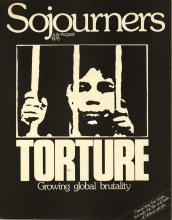Free people are not having an easy time in the world today nor are we likely to in the decades ahead ... We exist as a free people because we remain strong, because we have had the courage to defend liberty and deter those who would deny it, and because while we seek friendly relations with other nations -- we remain prepared against threats to our liberty.
The greatest threat to freedom in the years ahead will almost certainly come from the Soviet Union, a nation which does not share our dedication to personal liberty and the God-given rights of man -- a nation which possesses substantial military power and has shown an inclination to use that power to the detriment of the freedom of others (Donald Rumsfeld, Secretary of Defense, at the Naval Academy graduation, June 2, 1976).
The history of the Soviet Union is appalling. The invasions of Czechoslovakia and Hungary, the gulag archipelago, the repression of Catholics and Baptists, the seizure of eastern Europe, the restrictions on Jewish emigration -- such horrors justify Rumsfeld’s distress with Russia. No country in history, including Hitler’s Germany, has perpetrated so many horrors.
But what about the U.S.’s “dedication to personal liberty and the God-given rights of man”? Most Americans believe our dedication to liberty is absolute. But the facts support another conclusion.
Read the Full Article

